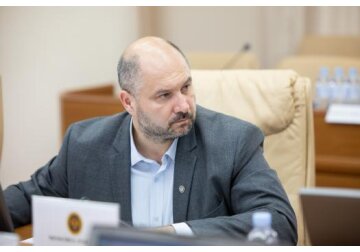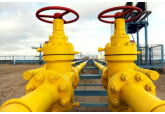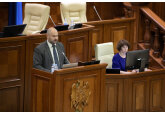
The budget of the Residential Energy Efficiency Fund for the next 3 years will amount to at least 723 million lei to be raised from energy companies.
The government decided to this effect by approving the Program for the implementation of the Energy Efficiency Liability Scheme for 2024-2026. It will take effect in 2024 and will put into practice the provisions of the Law on Energy Efficiency and the European Directive in this field. According to the Ministry of Energy, in addition to the amounts raised from economic operators, the annual budget of the Residential Energy Efficiency Fund will be doubled by contributions from development partners and international financial organizations. The Fund will be managed by the National Center for Sustainable Energy, the successor of the Energy Efficiency Agency. The Residential Energy Efficiency Fund will provide grant financing for up to 70% of the total costs required for energy efficiency and renewable energy measures in the residential sector, with the remainder to be contributed by tenants. The goal of the Fund is to annually renew at least 155 thousand square meters of heated area in apartment buildings and 56 thousand square meters in private houses, reducing energy consumption by at least 30% in residential buildings covered by the financing programs. According to Energy Minister Victor Parlicov, more than 70% of residential buildings in Moldova have a low level of energy efficiency and the population pays for energy losses. "Therefore, instead of compensating energy losses, which is a necessary anti-crisis measure, we aim to reduce consumption by improving the energy efficiency of dwellings. Calculations show that renovation of medium-level buildings - heat insulation of exterior walls, roof, basement, replacement of windows and doors with energy efficient ones, regulation of heat consumption and improvement of the lighting system - can yield savings of about 45% of the energy consumed," the Minister said. It is planned that 75% of the funds of the Residential Energy Efficiency Fund will be used for modernization of residential buildings, with selection criteria to be determined based on the level of energy losses, energy vulnerability of consumers, availability of own contribution, etc. For 2024, 25 tenants' associations have already been selected through a competitive bidding process and energy audits and energy efficiency measures will be carried out in the houses managed by them. The investments of the Residential Energy Efficiency Fund should ensure that in 2024-2026, the program will reduce the population's expenditures on energy resources consumed during this period by at least 120 million lei. In addition to direct energy savings, the program will bring indirect benefits in the form of reduced energy import costs, increased comfort in renovated buildings, improved aesthetics and value of buildings, increased disposable income of the population (these funds will be used for other expenditures, goods and services), increased economic activity in the construction, transport and services sectors, creation of new jobs necessary for the implementation of energy efficiency measures, reduction of CO2 emissions, improvement of living conditions and health and safety of the population. Fifty-five companies in the energy sector, including 2 electricity distribution system operators, 19 natural gas distribution system operators, 26 importers of petroleum products (gasoline, diesel and liquefied gas) and 8 heat suppliers for heating and/or domestic hot water preparation and/or cooling will contribute to the Energy Efficiency Liability Program in 2024. The size of their energy efficiency liabilities will not have a significant impact on final tariffs and will amount to about 1 bani per kWh of electricity, 5 bani per cubic meter of natural gas, 10 and 11 bani per liter of gasoline and diesel fuel, and, respectively, 15 lei per Gcal of heat energy. //27.12.2023 - InfoMarket.







